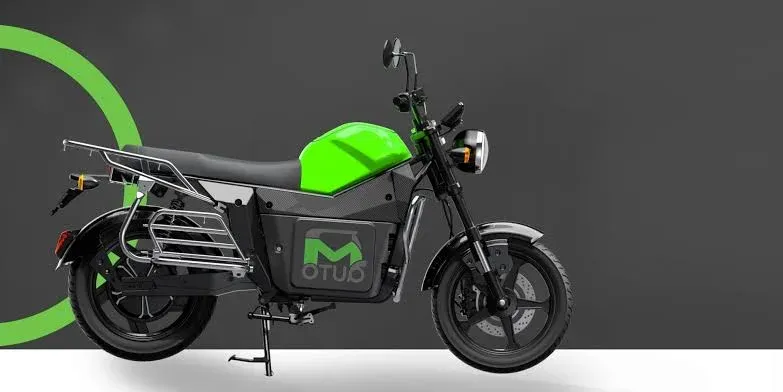Kenya Unveils Plans for Nationwide e-Bike Scheme to Fight Climate Change
In a groundbreaking move towards reducing carbon emissions and combating pollution, Kenya has unveiled ambitious plans to introduce electric motorbikes nationwide as part of a green transport initiative. President William Ruto, ahead of hosting the inaugural Africa Climate Summit in Nairobi, made the exciting announcement in collaboration with African startup Spiro.
Promoting Innovation for a Greener Future
During the launch ceremony held in the vibrant coastal city of Mombasa, President Ruto emphasized Kenya's commitment to climate action. He stated, "We are committed to enhancing our climate action by adopting low-carbon and efficient transportation systems through the application of innovations, including clean, efficient, and sustainable energy technologies."
Currently, Kenya boasts 1,000 electric bikes, with an additional 10,000 soon to join the ranks. Spiro, in response to this initiative, has established a manufacturing plant with the capacity to assemble 1,000 of these eco-friendly vehicles daily.
Addressing Pollution and Health Concerns
Kenya has approximately two million motorbikes on its roads, primarily "boda bodas," the ubiquitous two-wheeled taxis across the continent. President Ruto underlined the critical importance of electric mobility in addressing issues such as pollution, adverse health effects, and escalating fuel costs.
A Commitment to a Cleaner Future
Kenya's ultimate aim is to phase out traditional combustion engine-powered motorbikes, as President Ruto warned about the severe implications of their continued use for climate change and air quality. Although Africa contributes only two to three percent of global greenhouse gas emissions, it disproportionately bears the brunt of climate change, as reported by the UN Environment Programme.
Spiro's Remarkable Expansion
Spiro, the driving force behind this electric revolution, has already introduced nearly 10,000 electric bikes in various African countries, including Benin, Togo, Rwanda, and Uganda.
Their ambitious plans include setting up 3,000 battery charging and swapping stations in Kenya, in addition to 350 already established across Africa. Their vision extends to deploying over one million electric vehicles throughout the country.
Uber Joins the Green Movement
In a parallel development, Uber, the US app-based taxi service, announced its launch of electric motorcycle taxis in Nairobi, marking a significant milestone for the company in Africa. Initially, around 3,000 electric bikes will hit the streets, promising to reduce running costs for drivers by 30-35 percent and lower fares by 15-20 percent. Frans Hiemstra, Uber's regional general manager for the Middle East and Africa, expressed the company's commitment to becoming a zero-emissions platform by 2040.
Economic Impact and Government Goals
The boda boda sector in Kenya is a crucial economic contributor, employing over 1.5 million young people and injecting about 202 billion Kenyan shillings ($1.4 billion) into the economy annually, according to the World Bank.
Kenya's government has set a target for five percent of all registered vehicles to be electric-powered by 2030. Currently, electric vehicles (EVs) account for less than one percent of the total 4.4 million registered vehicles, according to government figures.
A Renewable Energy Revolution
President Ruto, a prominent figure in African climate change efforts, also outlined Kenya's potential to generate 100 percent of its energy from renewable sources by 2030, up from the current 90 percent. However, the country still grapples with frequent power cuts, exemplified by a massive outage that affected multiple regions, including Nairobi and its international airport.
Challenges Amid the Transition
As Kenya pushes forward with its green transportation revolution, it faces challenges such as soaring fuel prices, the highest in over a decade. These challenges compound the economic hardship faced by Kenyans grappling with a cost of living crisis and a slew of new taxes.
In conclusion, Kenya's commitment to reducing carbon emissions and embracing sustainable transportation marks a significant step towards combating climate change and improving air quality. The introduction of electric motorbikes and the expansion of Spiro's electric vehicle infrastructure, alongside Uber's green initiative, signal a promising future for eco-friendly transportation in Kenya. However, addressing challenges related to power generation and economic stability will be key to ensuring the success of this green transition.


